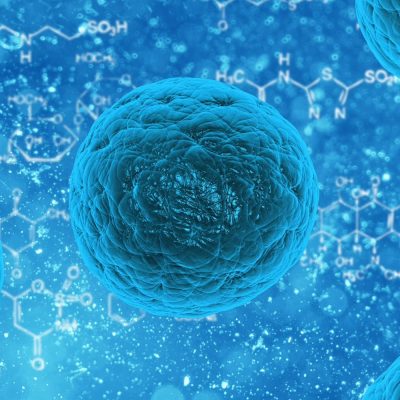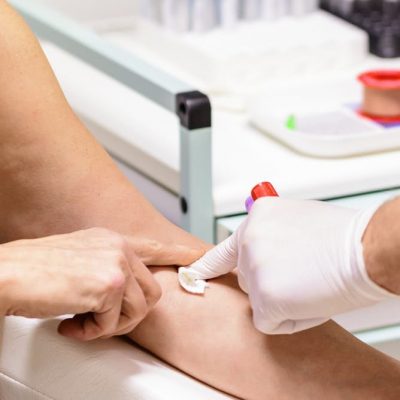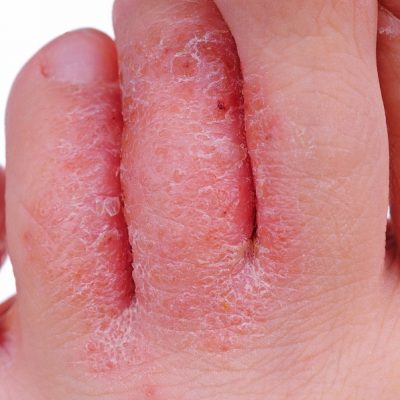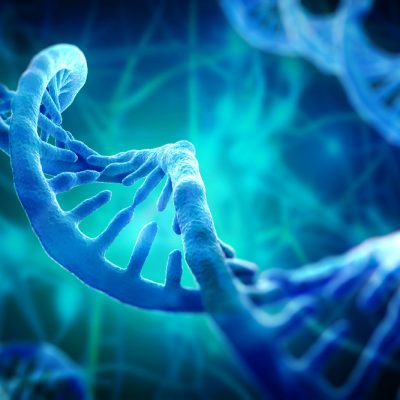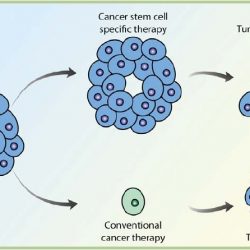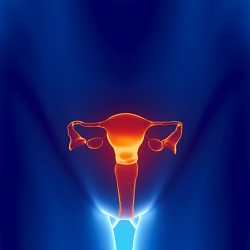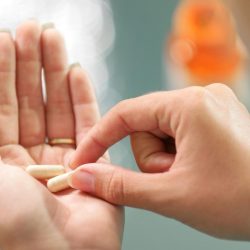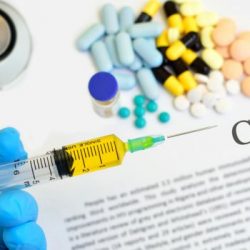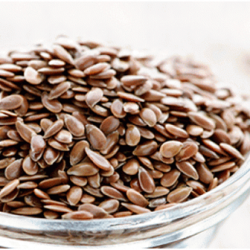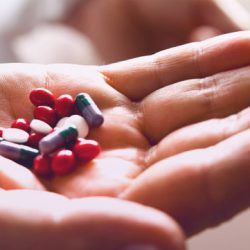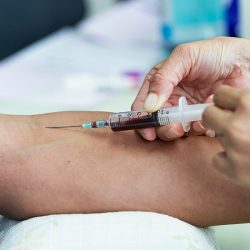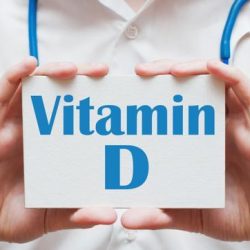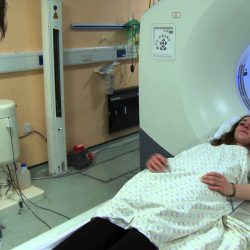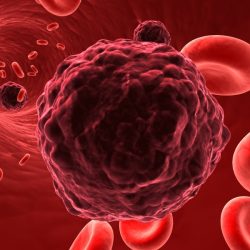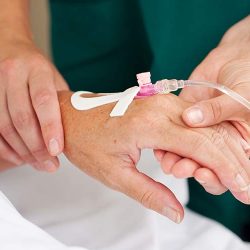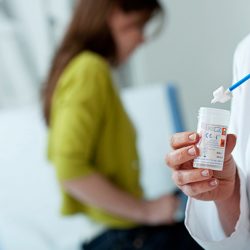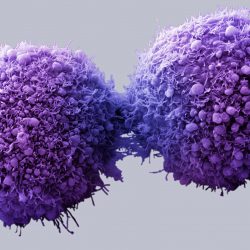Research indicates that cutting out specific foods can alleviate the gastrointestinal issues some people experience when they exercise, with over two-thirds of people involved in a new study reporting an improvement. Runners in particular can be susceptible to symptoms which are similar to irritable bowel syndrome (IBS). Previous research has shown that a low fermentable … [Read more...]
Cancer

Scientists Uncover How High-Fat Diet Drives Colorectal Cancer Growth
A new study led by Salk Institute scientists suggests that high-fat diets fuel colorectal cancer growth by upsetting the balance of bile acids in the intestine and triggering a hormonal signal that lets potentially cancerous cells thrive. The findings, which appeared in Cell on February 21, 2019, could explain why colorectal cancer, which can take decades to … [Read more...]
Skin Cancer can Spread in Mice by Hijacking the Immune System
Scientists have uncovered molecules released by invasive skin cancer that reprogram healthy immune cells to help the cancer to spread. Targeting these molecules with inhibiting drugs could help to prevent this aggressive skin cancer coming back after treatment. The findings of the Cancer Research UK-funded study are published in Cell, today (Thursday). Researchers from … [Read more...]
A new approach to detecting cancer earlier from blood tests
Cancer scientists led by principal investigator Dr. Daniel De Carvalho at Princess Margaret Cancer Centre have combined "liquid biopsy," epigenetic alterations and machine learning to develop a blood test to detect and classify cancer at its earliest stages. The findings, published online today in Nature, describe not only a way to detect cancer, but hold promise of … [Read more...]
Low or no-calorie soft drinks linked to improved outcomes in colon cancer
Drinking artificially sweetened beverages is associated with a significantly lower risk of colon cancer recurrence and cancer death, a team of investigators led by a Yale Cancer Center scientist has found. "Artificially sweetened drinks have a checkered reputation in the public because of purported health risks that have never really been documented," said the study's … [Read more...]
Researchers explore little-known, deadly fungal infections
"Cryptococcus is a type of fungus that all humans are frequently exposed to without much effect," Campuzano said. "People with healthy immune systems might be infected but may feel no symptoms. It is often cleared or kept in check without people even knowing they've encountered it." However, a person whose immune system is weakened by illness could face serious complications … [Read more...]
Many adolescent and young adult cancer survivors have more social connections than peers
Survivors of adolescent and young adult cancer often have stronger social networks than their non-cancer peers, according to St. Jude Children's Research Hospital researchers, who hope to translate that support into better lives for the nation's growing population of cancer survivors. The findings appear online today in the journal Cancer. "Cancer survivors need … [Read more...]
Can our genes help predict how women respond to ovarian cancer treatment?
Research has identified gene variants that play a significant role in how women with ovarian cancer process chemotherapy. The research showed that the genes we inherit can have a significant impact on how the body processes chemotherapy drugs, which may lead to different clinical outcomes for ovarian cancer patients. Lead researcher, led by Professor Anna deFazio … [Read more...]
Timing could matter to how responsive cancer cells are to treatment
DNA damage occurs routinely within your cells due to sun exposure, smoking and sometimes during the normal process of making new DNA. Fortunately, there are "checkpoints" in-place within cells to stop them from making more DNA and dividing before the damaged DNA is repaired. But in the case of cancer, cells may ignore these checkpoints, and go on to divide with damaged … [Read more...]
Abdominal fat a key cancer driver for postmenopausal women
Body fat distribution in the trunk is more important than body weight when it comes to cancer risk in postmenopausal women, according to a study presented at the ESMO 2017 Congress in Madrid. The findings put a new spin on weight management priorities for women in this this age-group, who are prone to abdominal weight gain, said study investigator Line Mærsk Staunstrup, … [Read more...]
Large-scale study of adaptation in yeast could help explain the evolution of cancer
Genes provide instructions to cells in the body telling them what to do and not do in order to function optimally. Small changes in genes, called mutations, can have major consequences. Similar to a glitch in a computer's coding, a glitch in gene coding can cause a cell's system to go haywire. Not all mutations are bad, however. The process of adaptive evolution selects for … [Read more...]
Tumor marker for aggressive ovarian cancer identified
Patients who expressed the tumor antigen NY-ESO-1 had more aggressive cancers and were more likely to die early from their disease, according to a large study conducted by Roswell Park Cancer Institute researchers and published online ahead of print in the journal Gynecologic Oncology. "This is the largest study of NY-ESO-1 expression in ovarian cancer patients, and … [Read more...]
Vitamin D, calcium supplementation among older women does not significantly reduce risk of cancer
Among healthy postmenopausal women, supplementation with vitamin D3 and calcium compared with placebo did not result in a significantly lower risk of cancer after four years, according to a study published by JAMA. About 40 percent of the U.S. population will have a cancer diagnosis at some point during their lives. Evidence suggests that low vitamin D status may … [Read more...]
Cancer overtakes heart disease as the main cause of death in 12 European countries
Although diseases of the heart and blood vessels (cardiovascular disease, CVD) kill more people worldwide than anything else, with 17.3 million deaths globally, cancer has now overtaken CVD as the main cause of death in 12 European countries. New data on the burden of CVD in Europe for 2016, which are published today (Monday) in the European Heart Journal, show that in … [Read more...]
Veterans returning from Middle East face higher skin cancer risk
Soldiers who served in the glaring desert sunlight of Iraq and Afghanistan returned home with an increased risk of skin cancer, due not only to the desert climate, but also a lack of sun protection, Vanderbilt dermatologist Jennifer Powers, M.D., reports in a study published recently in the Journal of Investigative Dermatology. "The past decade of United States combat … [Read more...]
Lung cancer: Protein as potential tool for predicting survival
The biomarker PD-1, a protein, could potentially be used to predict survival or disease-free survival of lung cancer patients who have had the tumour surgically removed. This is substantiated by the results of a study conducted under the direction of the Comprehensive Cancer Center (CCC) of MedUni Vienna and Vienna General Hospital, together with MedUni Graz and the University … [Read more...]
Alcohol intake associated with increased risk of melanoma
Alcohol intake is associated with higher rates of invasive melanoma among white men and women, new research shows. White wine carried the most significant association, and the increased risk was greater for parts of the body that receive less sun exposure. The study has been published in Cancer Epidemiology, Biomarkers & Prevention, a journal of the American Association for … [Read more...]
New Protein Sheds Light On How Diabetes Drug Prevents Tumors
Researchers at University of California San Diego School of Medicine have identified a previously unknown mechanism that helps fortify the structure and tight junctions between epithelial cells -- a basic cell type that lines various body cavities and organs throughout the body, forming a protective barrier against toxins, pathogens and inflammatory triggers. Breaches of this … [Read more...]
Blood Test Could Predict Best Treatment For Lung Cancer
A blood test could predict how well small-cell lung cancer (SCLC) patients will respond to treatment, according to new research published in Nature Medicine. Scientists, based at the Cancer Research UK Manchester Institute at The University of Manchester, isolated tumor cells that had broken away from the main cancer -- known as circulating tumour cells (CTCs) -- from … [Read more...]
Low Vitamin D Levels linked to Higher Risk of Bladder Cancer
Vitamin D deficiency is associated with an increased risk of developing bladder cancer, according to a systematic review of seven studies presented at the Society for Endocrinology annual conference in Brighton. Though further clinical studies are needed to confirm the findings, the study adds to a growing body of evidence on the importance of maintaining adequate vitamin D … [Read more...]
Cold Medicine Could Stop Cancer Spread, Study Reveals
Hokkaido University researchers have discovered that a nonsteroid anti-inflammatory drug used for treating colds suppresses the spread of bladder cancers and reduces their chemoresistance in mice, raising hopes of a future cure for advanced bladder cancers. Bladder cancer is the seventh most common cancer in males worldwide. Every year, about 20,000 people in Japan are … [Read more...]
Roadmap to get new cancer scans into clinic
A team of international scientists has outlined key recommendations for a global standard for scanning biomarkers in cancer -- to bridge the gap between research and the clinic, according to a new paper published in Nature Reviews Clinical Oncology today. Scans have transformed the way that doctors treat cancer patients and are integral to most key treatment decisions -- … [Read more...]
Cancer’s ‘invisibility cloak’: How It Works?
UBC researchers have discovered how cancer cells become invisible to the body's immune system, a crucial step that allows tumors to metastasize and spread throughout the body. "The immune system is efficient at identifying and halting the emergence and spread of primary tumors but when metastatic tumors appear, the immune system is no longer able to recognize the cancer … [Read more...]
Targeting Fat To Treat Cancer
Fat isn't just something we eat: it may also lie at the heart of a new approach to treating cancer. Cells create their own fat molecules to build their plasma membranes and other critical structures. Now, researchers at the Salk Institute, along with academic and industry collaborators, have found a way to obstruct this instrumental process to stifle cancer's growth, … [Read more...]
A Cardioprotective Chemotherapy Drug Can Have Negative Effects On Heart
A potent chemotherapy drug can be life saving for children with cancer, but a new review highlights how it can have long-lasting negative effects on the heart. The review, which is published in the British Journal of Clinical Pharmacology, also indicates that this chemotherapy-related heart damage may be prevented by a cardioprotective drug. Advances in cancer therapy have … [Read more...]
Impact of cancer screening in California over past 15 years
A new report from the UC Davis Institute for Population Health Improvement (IPHI) shows the impact of cancer screening over the past 15 years, identifying areas where increased screening and other cancer-control efforts would save lives and significantly benefit population health. The CalCARES report uses heat maps to show areas with higher proportions of particular … [Read more...]
A Mechanism That Allows Cancer To Survive Without Glucose
The main goal of a tumour cell is, above all, to survive, even at the cost of damaging the health of the organism to which it belongs. To do this, it is equipped with skills that healthy cells do not have, including the ability to continue surviving when glucose levels are very low. This could be one of the reasons why widely-used anti-angiogenic agents often fail to eliminate … [Read more...]
Skin Cancer Patients Still Too Likely To Sunburn
A recent study by researchers at Johns Hopkins concludes that a substantial number of people with a history of the most frequent kind of non-melanoma skin cancers still get sunburned at the same rate as those without previous history, probably because they are not using sun-protective methods the right way or in the right amounts. The findings, which were based on … [Read more...]
New Therapeutic Avenue in the Fight Against Cancer
A team of researchers led by professor Jean-Christophe Marine (VIB-KU Leuven) has identified NEAT1, a non-coding RNA, as a potential therapeutic target in the fight against cancer. In collaboration with the Cédric Blanpain lab (ULB), VIB researchers have shown that NEAT1 plays an important role in the survival of highly dividing cells -- and in particular of cancer cells. These … [Read more...]
Women with BRCA1 at High Risk of Uterine Cancer
Women who carry the BRCA1 gene mutation that dramatically increases their risk of breast and ovarian cancers are also at higher risk for a lethal form of uterine cancer, according to a study led by a Duke Cancer Institute researcher. This newly defined risk -- the first to show a conclusive link between the BRCA1 gene mutation and a small but significant chance of … [Read more...]
- « Previous Page
- 1
- 2
- 3
- 4
- 5
- …
- 38
- Next Page »


